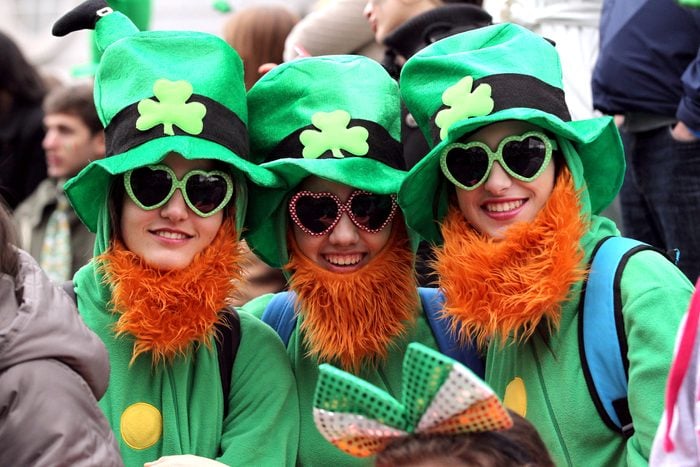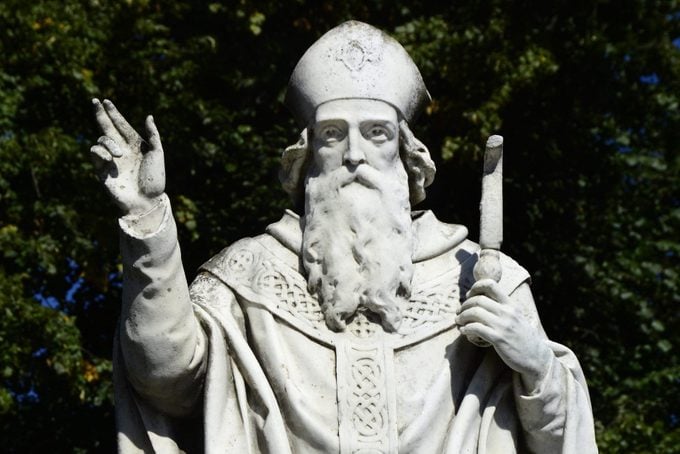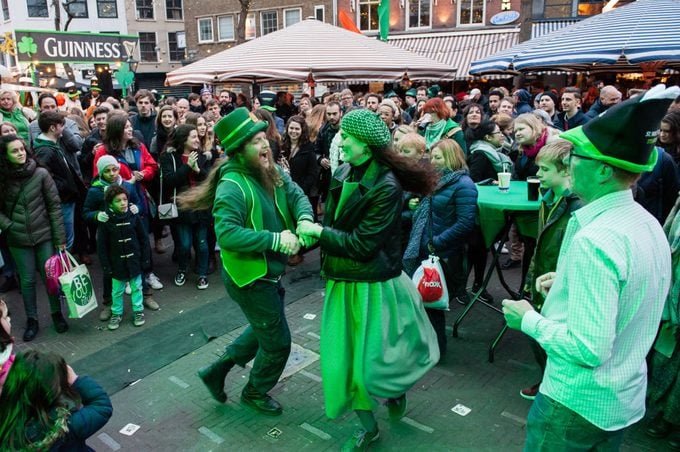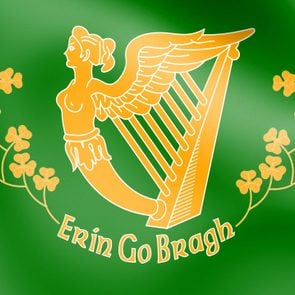St. Paddy or St. Patty—Which Is Correct?
Updated: Mar. 31, 2024

We’re settling the St. Paddy or St. Patty debate for good!
St. Patrick’s Day is a day to celebrate the luck of the Irish with fun traditions like wearing green and dunking a shamrock (maybe even telling a St. Patrick’s Day joke or two). It’s also a time when many resurrect an age-old debate: the battle of St. Paddy or St. Patty. Some are firm about St. Paddy being the proper phrase to use when talking about St. Patrick’s Day, but others swear up and down it’s St. Patty.
So which one is correct? Let’s look at both sides of the argument—and back through history—to get the answer.
Get Reader’s Digest’s Read Up newsletter for more holiday tips, fun facts, humor, cleaning, travel and tech all week long.
St. Paddy or St. Patty—which is correct?

It’s St. Paddy, end of discussion. This is less of a grammar debate and more of a vernacular one. Those familiar with Irish traditions, or traditional Irish names, are puzzled as to why there is even a St. Paddy or St. Patty debate in the first place—to them, this isn’t even something that needs to be questioned.
Why? Well, “Paddy” is the casual form of the traditional Irish-Gaelic name Padraic or Pádraig, and its later English variation, Patrick. “Patty,” on the other hand, is traditionally used as a nickname for the female name, Patricia.
In the Irish vernacular, “Paddy” has been used as an affectionate nickname. But it has also been used in other countries as a not-so-flattering slang term for an Irish person (as in “paddywagon” and “paddywhack”). Perhaps that may partially explain why some shifted away from using it, opting instead for the “Patty” alternative, which is more commonly found in English cultures.
The heart of the St. Paddy or St. Patty debate: St. Patrick’s Day

This March holiday started centuries ago as a feast day to celebrate St. Patrick, the patron saint of Ireland. Days of religious observation are generally treated with a sense of formality, and saints typically would only be referenced by their full names. But over the years, St. Patrick’s Day was gradually absorbed into the general culture, where it is treated more casually. It transformed into more of a fun-filled day where people gather to watch Irish movies, dance or sing (they even turn the Chicago River green to celebrate!).
With that shift came the habit of referring to the occasion in a sort of slang version of the name of the man who inspired it all. And thus, the enduring St. Paddy vs. St. Patty controversy began. Almost from the start, there have been two distinct camps, and everyone seems to be firmly entrenched in one or the other.
What’s wrong with using St. Patty?
“Patty” is traditionally used as a nickname for the female name Patricia. To those who ardently defend the legacy of the name’s authentic roots, hearing “St. Patty’s Day” is like nails on a chalkboard. Someone was so passionate about the topic that they created a “Paddy not Patty” website, designed as a “public service announcement” to help the people of the world avoid making an embarrassing faux pas.
Long story short: Say sláinte, toast to the holiday and stay truer to Irish roots by using St. Paddy. Of course, there is one simple way to avoid getting caught in the fray of the “St. Paddy or St. Patty” controversy altogether: Just refer to the holiday as St. Pat’s.
Sources:
- USA Today: “Is it St. Patty’s Day or St. Paddy’s Day?”
- Name Meaning: “What does the name Pádraic mean?”
- Paddy, Not Paddy



